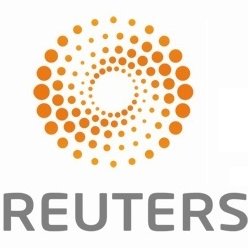News
Reuters paywall breaches Refinitiv deal terms, LSE warns
Thursday 20 May 2021

A rift between the London Stock Exchange and Reuters has opened up over the agency's plans for a new paywall, Barron's reported. The LSE claims it is in breach of a 30-year agreement for the sale of its news to Refinitiv.
An LSE letter to Reuters, dated 13 May, argues that the agency’s April announcement of a plan to charge for content was “not permitted” under the terms of the 2018 Refinitiv sale, Barron’s said.
David Craig, chief executive of Refinitiv, and Andrea Stone, LSE Group’s chief customer proposition officer, said in the letter to Michael Friedenberg, chief executive of Reuters, that requiring Reuters readers to pay for content “would cause Refinitiv significant loss and material and irreparable harm”.
Reuters derives around half of its revenue from Refinitiv, making it the agency's biggest client. Thomson Reuters, parent company of Reuters News, holds a 15 per cent stake in LSE Group following its $27 billion all-stock deal in 2019 for Refinitiv. The LSE’s purchase of Refinitiv took two years to complete - amid regulatory requirements and snags driven by the COVID-19 pandemic.
In a joint statement LSEG and Thomson Reuters told Barron’s they had a long standing and valued partnership.
“Just as with any commercial agreement, there are ongoing and private discussions about our business approach and products,” they added. “The foundation of our partnership is strong and we will continue to work together to deliver for all of our customers.”
Refinitiv was part of Thomson Reuters until 2018 when a majority stake was purchased by private-equity firm Blackstone in a deal valuing the business at about $20 billion. That deal included a 30-year agreement for Refinitiv to pay Reuters $325 million a year for the supply of news. In 2019, LSE announced its intention to buy Refinitiv.
The letter requests “a prompt meeting to facilitate a resolution” to the matter, and adds that Refinitiv has the right to take actions permitted under the terms of its news agreement with Reuters. A description of the agreement in a 2019 circular to LSEG shareholders states that either party “can bring an action (including a claim for specific performance or injunctive relief) in the New York courts” if any disputes arising from the agreement cannot be resolved amicably.
Reuters unveiled a redesigned website last month in a bid to attract a professional audience for its business, financial and general news, as part of a wider strategy to boost revenue from its digital news readership. It billed the change as “the largest digital transformation at Reuters in a decade.”
After registration and a free preview period, a subscription to Reuters.com will cost $34.99 a month, the same as Bloomberg’s digital subscription. The offering, available as monthly or annual and individual or group packages, will also include live streams of Reuters events for subscribers and subscriber-only newsletter, the agency said.
Refinitiv’s agreement with Reuters, which is valued at around $10 billion, included non-compete clauses which limit Reuters’ ability to work with Refinitiv’s rivals, closing off potential commercial opportunities.
“The news agreement prohibits Reuters from directly soliciting, treasury, investing or hedging departments of any company to purchase General News Content,” the letter states. “The statements on your website about this new proposed website make it clear that you are directly soliciting professionals in trading and investing departments to enter into news agreements.”
“Launch of the Reuters Service would be in breach of the News Agreement, particularly given your marketing materials,” it adds. ■
- SOURCE
- Barron's
- « Previous
- Next »
- 221 of 2177